Experience Authentic Japanese Hospitality: Embrace Tradition at a Ryokan
- janellesison
- 8月7日
- 読了時間: 5分
From temples and shrines to hotels and accommodations, Japan boasts a rich architectural heritage reflecting the country’s deep traditional, and hospitable nature.
Tucked away in northern Japan, the Tohoku region is rarely explored by travelers.
Despite being situated within nature, far from the typical tourist trail, Tohoku is home to some of the country’s most remarkable ryokans, where serene landscapes and heartfelt hospitality create an unforgettable retreat into tradition.
So, why not skip the modern hotel reservation and book a stay in a traditional Japanese accommodation away from the ordinary?

You may have marveled at the intricacy of traditional Japanese houses, where each style reveals a unique background of Japan’s history and culture. Amid these architectural treasures exists a Ryokan (旅館)– a Japanese inn, often located near natural hot springs known as onsens (温泉), blending comfort with tradition.
From centuries past, the origins of Japanese ryokans date back to their earliest form: fuseya (伏せ屋), directly translating to humble cottage that served as a sanctuary for wandering travelers during the Nara period.
As more travelers came, fuseya evolved into something more than accommodation, offering food, relaxation, and rejuvenation. The concept of ryokan emerged, where both native and overseas visitors can appreciate what was once just a humble cottage, and now a place that truly equates to a temporary home.

The place you choose to stay is often for convenience, rarely thought of as something that elevates your travel experience. Modern hotels are predictable and monotonous, imitating fuseyas mundane beginnings.
But true travel doesn’t just begin with where you decide to go. It’s about how deeply you can connect with your surroundings, including the location you choose to rest.
A ryokan’s deeply rooted tradition reveals a unique value for travel, offering an unparalleled glimpse into the traditional Japanese lifestyle, from its hospitality down to its interior design.

The culture of a ryokan begins with omotenashi (おもてなし), a concept that paints the wholeheartedness of Japanese hospitality.
In modern hotels, hospitality feels transactional between the guests and service providers. At a ryokan, omotenashi is beyond a transactional experience. It fosters a deep focus on guest experience, allowing a reciprocal atmosphere to naturally flow. Its principles are built around an unspoken care that relies on intuitive understanding of guest needs, creating a meaningful connection without means of compensation.
It is because of omotenashi that ryokan interactions tend to be personal and grounded in cultural narratives. Here, you’ll likely have meaningful conversations in community-rich settings with people you normally don't converse with. It's the spirit of omotenashi that you cannot find in regular accommodation sites.

But most travelers may seek more than hospitable treatment, wishing for more culturally transformative experiences.
An integral part of ryokan’s are the natural onsens (温泉)– mineral-rich hot springs. Ryokan onsens are seamlessly integrated into their natural surroundings, typically the highlight of many ryokan goers. Just imagine soaking in the natural healing waters of Ryokan onsens overlooking the beauty of Japan’s rural landscapes.
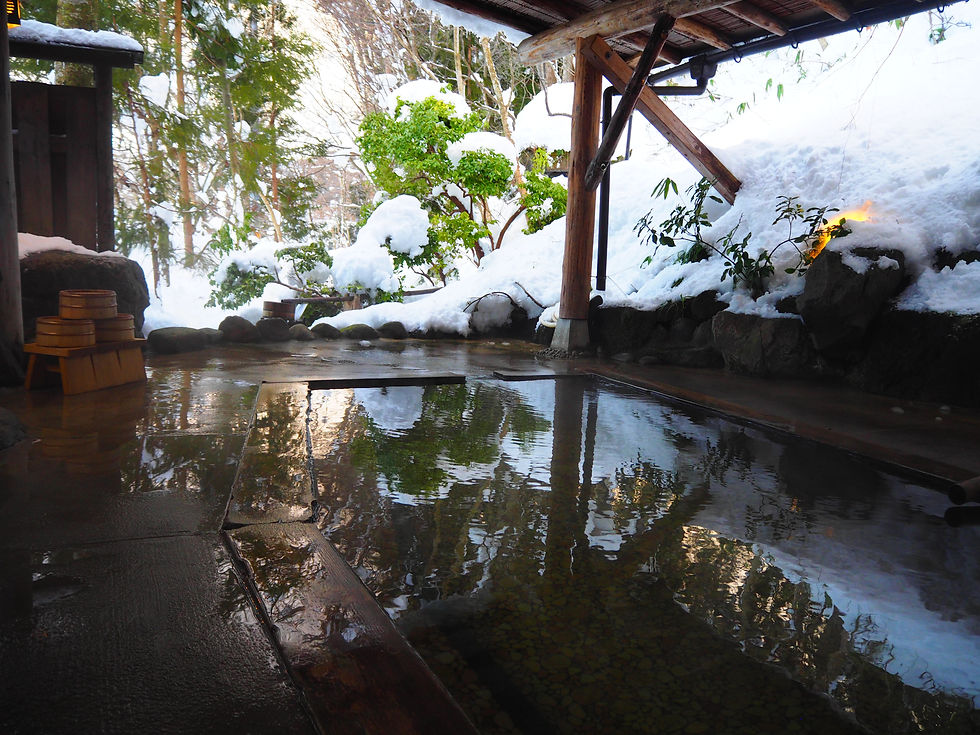
The onsen experience is all about honoring Japanese culture, and adhering to onsen etiquette is a cherished practice. The traditional Japanese custom of pre-showering will display a sense of respect for yourself, others, and the onsen. At Ryokan Ohnuma, fifth-generation owner Shinji Ohnuma prioritizes his ryokan’s onsen, reflecting his commitment to blending cultural immersion with natural relaxation for his guests.
While urban ryokans provide similar exposure, they may feature communal or private baths in place of authentic onsens. Regardless of these differences, the essence of the ryokan experience remains unforgettable.
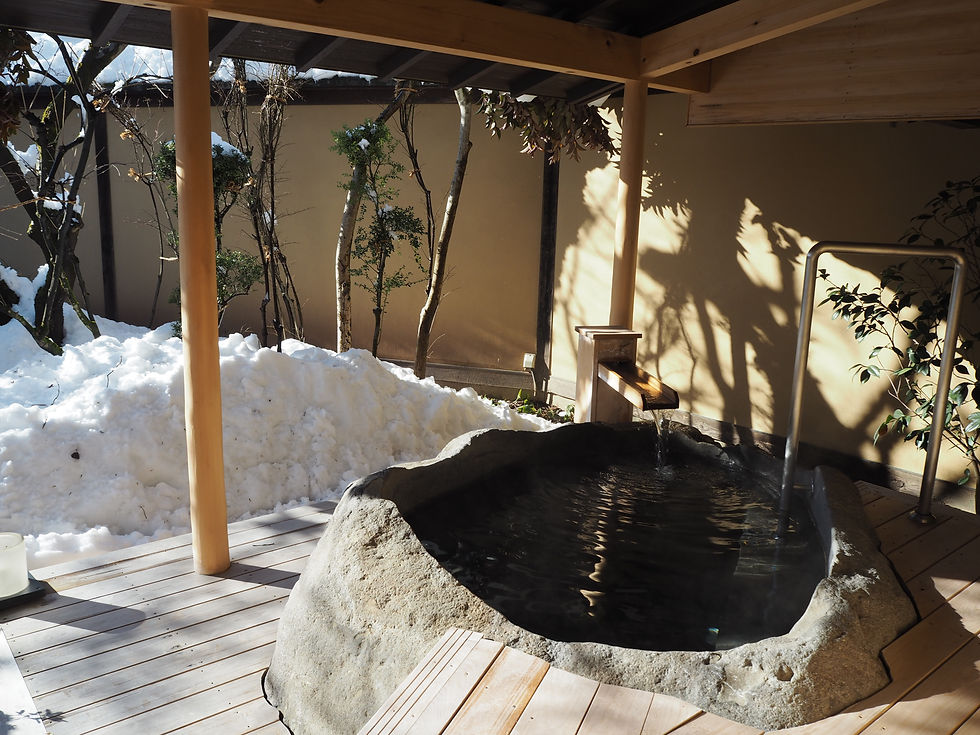
The world of ryokan simply doesn’t stop with omotenashi and its onsen bathing customs.
Enriching elements such as tatami mat flooring, sliding doors, low tables, and futons invite guests to unwind and appreciate the intricacies of Japanese culture. Although it may initially seem unfamiliar, embracing the essence of a ryokan will undoubtedly refine your journey through Japan.
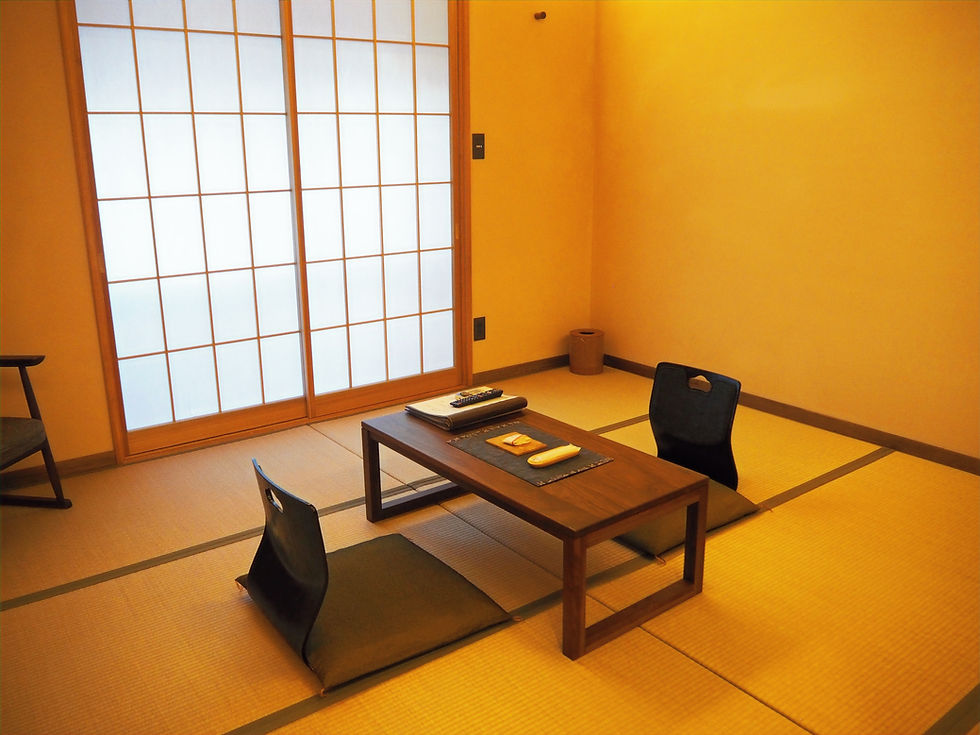
As you enter the ryokan, you’ll likely be greeted with a warm welcome from the staff, where you’ll feel omotenashi from the very beginning. Upon locating your ryokan room, remember to remove your shoes before stepping onto the tatami mats (畳), as it’s composed of delicate straw material.
You may also find yourself in a bedless room, but don’t worry; this is part of the ryokan charm. Sleeping on futons layered over tatami mats is a traditional practice and contributes to the Japanese minimalist lifestyle.
During your stay, take the opportunity to lounge in a yukata (浴衣), a kimono-inspired robe, allowing you to absorb true ryokan ambiance. It's the quite details that embody more meaningful experiences compared to the modern aspect of travel lodging. A ryokan is more than a traditional place to sleep; the concept itself is steeped in Japanese culture.

Another ryokan highlight among guests is indulging in kaiseki (会席), a multi-course dining experience. Although not common for all ryokan, guests can partake in tea ceremonies. Staying in a ryokan is a level of connection to the local culture that modern hotels simply cannot replicate.
It’s a rewarding connection between guests and locals. You can enjoy the simplicity of life outside Japan’s bustling cities and absorb nature’s beauty. Ryokans remain a transcending choice for those seeking authenticity that aligns with mindful exploration.
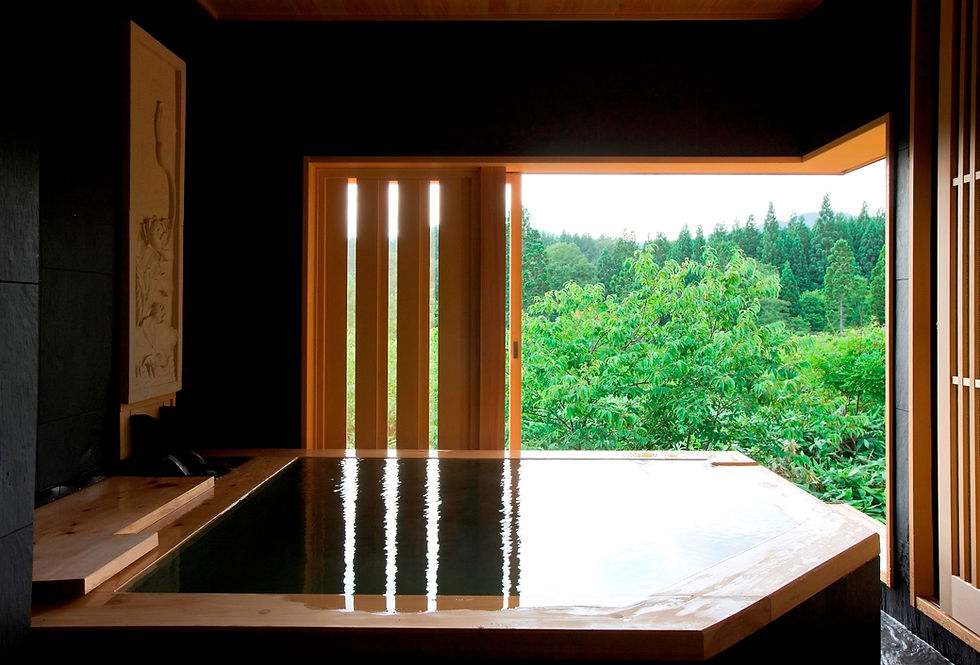
Tricolage has narrowed our exploration of Japan’s ryokans from sacred hot springs to tranquil mountains to fit your travel desires. Japan’s Tohoku region, often overlooked by visitors, is home to some of the country’s top ryokans nestled within Japan’s natural environment.
In Fukushima, Hanakanzashi Ryokan lies in the Tohoku region, known for its nearby forest wonders, mountainous terrain, and coastal views. Just north of Hanakanzashi is Tendo-so Ryokan where guests can enjoy different hot spring baths depending on the choice of room. After long days of exploring nearby historical, artistic, and cultural sites, you can unwind and continue your journey at the core of Japanese customs.
A well-curated list of Ryokans with natural springs awaits in northern Japan! The gentleness from Ryokan Ohnuma, in Naruko Onsen, Miyagi has eight pristine onsen baths where you can overlook the mountains. Just north of Ryokan Ohnuma, Wabizakura, in Kakunodate, Akita is positioned to overlook Japan’s green tapestry of forests while soaking in high-quality alkaline hot spring water!
Other notable ryokan we compiled include Sekizenkan in Gunma, Sasaya and Nakadanaso in Nagano, Tsuruya in Fukui, and Omaki in Toyama, Yamashita in Ishikawa. Ultimately, the allure of ryokans not only enhances journeys but encourages the discovery of overlooked aspects of Japan, enriching your travel experience while preserving the culture of its community.
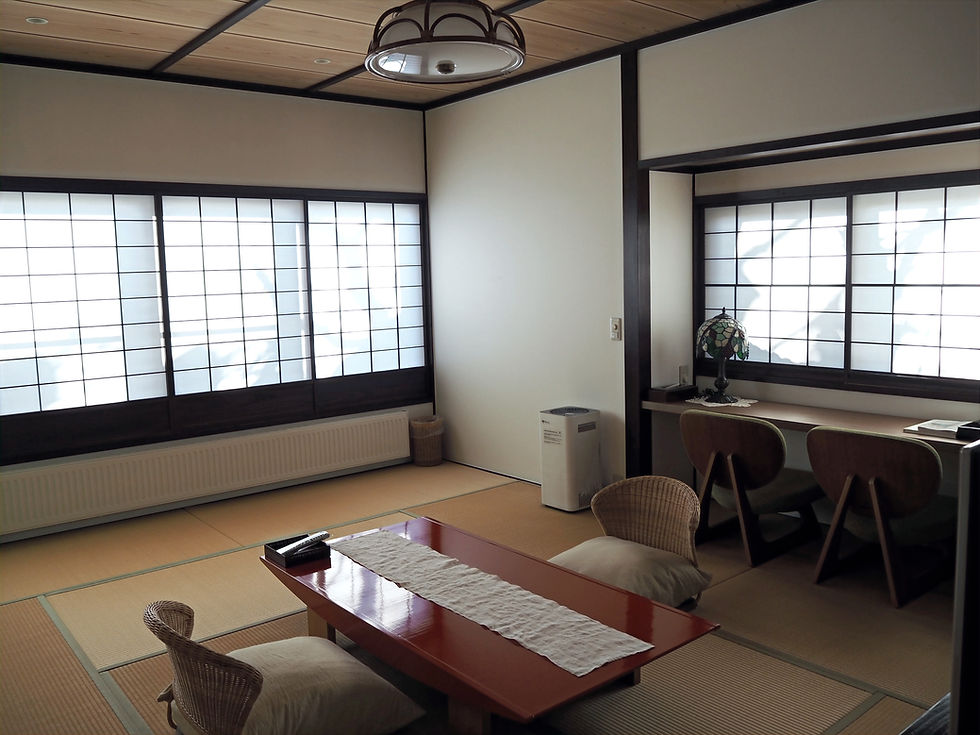
Travel isn’t a checklist of places seen but as a journey transformed by the spaces you decide to go to.
Staying in a ryokan makes every moment of your journey worthwhile, yet the traditional inn remains a hidden gem among travelers. It’s not just about accommodating, but an opportunity for you to delve into experiences that intertwine your well-being and the richness of Japanese heritage.
At Tricolage, we believe that where you stay should be as meaningful as the destination itself. Each moment is meant to immerse you fully—to wind down time, elevate senses, and support local communities you interact with.
You don’t just visit a place—you value its core roots and become part of its story.



Kommentarer